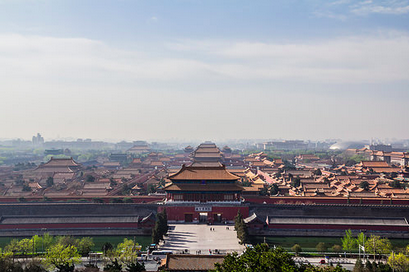China is Choking on its Own Debt. We have it on good authority. And in this case that authority is an unlikely source – the People’s Bank of China (PBoC). It’s difficult to remember the last time so many paid so little attention to something so vitally important. The revelation came in the bank’s release of its 1Q 2015 Monetary Policy Report on 8 May 2015.
The catch? The report is available only in a Chinese language version. In the report, the PBoC acknowledges:
- China has too much debt
- The government has relied too heavily on investment for growth
- Credit expansion is no longer possible
- The economy is inevitably decelerating as a result
These conclusions are not new for most of us, but the government’s admission of the problem is very new and very important. The English version of the quarterly monetary reports is usually published with a two months’ lag. So we are unlikely to see the English translation of this first quarter report until early July 2015.
Why is this important?
The PBoC has explicitly acknowledged that leverage in China is excessive and the level of debt is an impediment to further growth. We have been relating this story for months (maybe years), but now the government has openly acknowledged it’s in a bind. Here’s the relevant excerpt in the translation provided in the Bloomberg story.
“…Economic growth is, to a large extent, still relying on government-led investment, and the room for further expansion is quite limited. In addition, the rising debt size is forcing China to use a lot of resources in repaying and rolling over debt, which leads to contraction effects for the macro economy.”
Given the exceptional nature of the disclosure, we were determined to corroborate its validity. With Google translate in hand, we scanned the PBoC website and found our way to page 54 of the monetary report in Mandarin.
“Mostly Mandarin” website policy leaves foreigners out of the loop
The PBoC web site in English is far from exemplary in its disclosure. In fact, I find the differences between the PBoC’s English language and Chinese language sites utterly surprising from a country that aspires to an equal footing in the international community. If China aspires to have a reserve currency, shouldn’t transparency in monetary policy be a top priority for the PBoC?
I spent some time comparing the two sites and quickly made the following observations: the news scroll on the Chinese site posted 32 stories during April 2015, while the English site posted only 12. If you’re looking for detailed statistics, the English website will only bring you up into the current decade with 2010 information. On the other hand, the Chinese website appears to be full-fledged and current. Chinese economic data are available elsewhere, but in many cases entirely behind pay walls (Bloomberg, Haver and the CEIC data base.)
We ask ourselves the obvious question…is a currency with such a chasm in information disparities ready for an open current account? I think not.
Joseph Taylor is a vice president of Loomis, Sayles & Company and senior sovereign analyst for the Loomis Sayles fixed income group.


